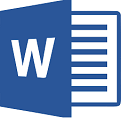Refuseapp: Waste Transportation Service Application
Abstract
Keywords
Full Text:
PDFReferences
Alfian, R., and Phelia, A. (2021). Evaluasi efektifitas sistem pengangkutan dan pengelolaan sampah di tpa sarimukti kota bandung. JICE (Journal of Infrastructural in Civil Engineering), 2(01), 16-22.
Abdallah, M., Talib, M. A., Feroz, S., Nasir, Q., Abdalla, H., and Mahfood, B. (2020). Artificial intelligence applications in solid waste management: A systematic research review. Waste Management, 109, 231-246.
Clift, R., Doig, A., and Finnveden, G. (2000). The application of life cycle assessment to integrated solid waste management: part 1—methodology. Process Safety and Environmental Protection, 78(4), 279-287.
Desiani, A., Yahdin, S., Maiyanti, S. I., Putri, D. L. D., Wibowo, I. T., Djohar, M. A., and Irsyad, M. S. (2021). Pemanfaatan aplikasi perkantoran untuk pengelolaan administrasi desa penyandingan ogan ilir. Dinamisia: Jurnal Pengabdian Kepada Masyarakat, 5(3), 699-705.
Dhika, H., Lukman, L., and Fitriansyah, A. (2016). Perancangan sistem informasi jasa pengiriman barang berbasis web. Simetris: Jurnal Teknik Mesin, Elektro Dan Ilmu Komputer, 7(1), 51-58.
Gottinger, H. W. (1988). A computational model for solid waste management with application. European Journal of Operational Research, 35(3), 350-364.
Khaer, M., St Maryam, H., and Syarkawi, M. T. (2020). Studi perbandingan karakteristik pengguna angkutan online dan angkutan konvensional di kota makassar. Jurnal Teknik Sipil MACCA, 5(3), 275-289.
Manila, R. L., and Sarto, S. (2017). Evaluasi sistem pengelolaan limbah medis Puskesmas di wilayah Kabupaten Bantul. Berita Kedokteran Masyarakat, 33(12), 587-594.
Marali, M. D., Pradana, F., and Priyambadha, B. (2018). Pengembangan sistem aplikasi transaksi bank sampah online berbasis web (studi kasus: bank sampah malang). Jurnal Pengembangan Teknologi Informasi Dan Ilmu Komputer, 2(11), 5644-5650.
Marsellah, R., Meronda, I. E. S., Syarkawi, M. T., and Arifin, W. (2022). Analisis Efektivitas Transportai Ojek Online sebagai Pilihan Moda Transportasi di Kecamatan Tamalanrea. Jurnal Ilmiah Mahasiswa Teknik Sipil, 4(1), 1-6.
Morrissey, A. J., and Browne, J. (2004). Waste management models and their application to sustainable waste management. Waste management, 24(3), 297-308.
Ndoa, L. A., and Kurniati, P. S. (2022). Implementasi kebijakan e-government dalam pengelolaan sampah melalui aplikasi kurangi, pisahkan, manfaatkan sampah (kang pisman) mobile di kecamatan mandalajati kota bandung provinsi jawa barat. Journal of Governance and Local Politics (JGLP), 4(2), 176-187.
Pratama, A. Y., Rahma, Y., and Normassari, A. (2018). Jasa pengangkut sampah (sangkuts) berbasis android di kabupaten kudus. Simetris: Jurnal Teknik Mesin, Elektro dan Ilmu Komputer, 9(1), 35-40.
Qadri, U., Wahyuni, R., and Listiyawati, L. (2020). Inovasi manajemen pengelolaan sampah yang berwawasan lingkungan di kota pontianak berbasis aplikasi. Eksos, 16(2), 144-160.
Rahmanto, Y., Ulum, F., and Priyopradono, B. (2020). Aplikasi pembelajaran audit sistem informasi dan tata kelola teknologi informasi berbasis Mobile. Jurnal Tekno Kompak, 14(2), 62-67.
Skibniewski, M. J. (2015). Research trends in information technology applications in construction safety engineering and management. Frontiers of engineering management, 1(3), 246-259.
Suryani, L., Murniyasih, E., Saptono, M. P., Waliulu, R. F., Saputro, I. T., and Rumalutur, S. (2022). Pengembangan aplikasi bank sampah dengan metode extreme programming. Electro Luceat, 8(2), 84-94.
Taufiq, A. (2015). Sosialisasi sampah organik dan non organik serta pelatihan kreasi sampah. Asian Journal of Innovation and Entrepreneurship (AJIE), 4(01), 68-73.
Utami, K., Rialmi, Z., and Nugraheni, R. (2022). Analisis perencanaan aplikasi bank sampah digital studi kasus pada bank sampah solusi hijau. Jurnal Penelitian Manajemen Terapan, 7(1), 34-49.
Yanto, R. (2018). Implementasi data mining estimasi ketersediaan lahan pembuangan sampah menggunakan algoritma simple linear regression. Jurnal Rekayasa Sistem dan Teknologi Informasi, 2(1), 361-366.
DOI: https://doi.org/10.17509/seict.v3i2.47090
Refbacks
- There are currently no refbacks.
Copyright (c) 2022 Journal of Software Engineering, Information and Communication Technology (SEICT)

This work is licensed under a Creative Commons Attribution-ShareAlike 4.0 International License.
Journal of Software Engineering, Information and Communicaton Technology (SEICT),
(e-ISSN:2774-1699 | p-ISSN:2744-1656) published by Program Studi Rekayasa Perangkat Lunak, Kampus UPI di Cibiru.
Indexed by.



